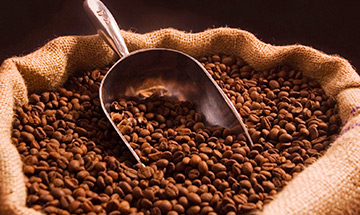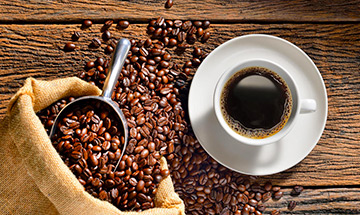Contents
Are you thinking about how to manage your addiction to coffee without having to forego the beverage? DO you think it is possible to stay away from the ill-effects of caffeine in coffee by not having to stop drinking your favorite beverage? We know it can be a difficult task to put a stop to this habit overnight. However, we can suggest another alternative, which will be a kind of win-win situation for you, meaning you will not have to stop drinking your favorite drink and will keep you away from the ill-effects of excessive caffeine consumption. What more do you need? Yes! Let’s learn more about the exclusive health benefits decaf coffee can provide you. This article will also help you know how to differentiate between the regular coffee and the decaffeinated one.
What is Decaf Coffee

Let’s get started with the basic stuff. Decaf coffee is the short name for “Decaffeinated Coffee.” Wait, do not be fooled by the name entirely, as it is not 100% free from caffeine. The levels of caffeine in decaf coffee are lower when compared to the regular ones—wondering how much lower or amount of caffeine in decaf coffee? Well, this depends wholly on the brand you choose, and each one might have a distinct way of manufacturing. Ideally, the process of decaffeination will remove over 97 percent of the stimulant. So, if you compare it with the regular caffeinated drinks, each cup of this preparation will contain only about 3 milligrams of the psychoactive substance as against 85 milligrams in your ordinary drink.
No matter the type of process followed, there is a minimal amount of caffeine that will be present even in the best decaf coffee. We hope this answers the question of does decaf coffee has caffeine?
From the taste and texture perspective, it is sure to give you the same feel as a caffeinated drink only that you will enjoy a healthier cup with lesser amounts of the stimulant. You can stay alert and focused while also not compromising on your sleep or mental well-being. Are you still wondering is decaf coffee good for you? Apart from it having lesser amounts of caffeine, let’s also explore some of the health benefits it is likely to offer.
How is decaf coffee made

Coffee beans naturally contain caffeine as part of its composition, so how is decaf coffee deprived of this content? There is an exciting story to it and it goes likes this. Decaf coffee, too, was an accidental discovery. It was in 1900 a cargo loaded with coffee beans got soaked in seawater, and it meant that caffeine was eroded from the beans. Later the dealer is believed to have recreated this relatively stimulant-free version by adding a chemical solvent called benzene to it. Yes, you heard it right, benzene is the chemical present in gasoline. Benzene is not safer than caffeine. However, at present, manufacturers add safer chemicals to make caffeine-free coffee.
Manufacturers have moved on to safer means of making decaf coffee. Benzene, which is considered as carcinogenic, is no longer used in the process. Rather, other safer chemicals such as Methylene chloride or Ethyl Acetate are used. These are added to the water in which the beans are soaked to remove the caffeine content. Then the water is evaporated so that the flavor is kept intact.
Some brands also follow a more organic way of making decaf coffee; this is done by using charcoal filters or liquid carbon dioxide for the process instead of chemicals. So, if you intend on using one without the presence of solvents, explore the organic variants in the market.
Decaf coffee vs regular coffee
We know that it is quite tempting to compare the decaffeinated version with your original one. So here is a more detailed guide to it.

- Stimulant content: The main difference between decaf and regular coffee stems from the fact that decaf versions contain lesser amounts of caffeine than regular coffee.
- Taste and texture: Both these attributes are more or less similar when you compare the two versions. Unless you are a hardcore coffee enthusiast, you will not be able to know the difference by simply tasting it.
- Jittery feel This feeling that you get from drinking too much-caffeinated drinks. You will not face this issue with the decaffeinated versions as it contains lesser amounts of the stimulant.
- Health implications: If you have a history of anxiety, depression, heartburn sensations, ulcers, chronic headaches, or sleeplessness, then decaf is a better and safer option as the regular drink can worsen the symptoms.
- Energy and concentration: It goes without saying that you will find yourself more energetic and focused when you consume regular coffee than the decaffeinated one. However, it also means that you cannot escape the side effects of excess caffeine in the drink.
One common thing is probably the dehydration caused by both drinks. If you consume either of these two, make sure you are drinking enough water to keep your body hydrated. Now is the time to explore the real health benefits the decaffeinated version provides.
Health benefits of decaf coffee
Decaffeinated coffee benefits are more or less similar to that of your regular coffee except that it is healthier on your stomach, mental health, and overall well-being.
Lets first take a look at the adverse effects of too much caffeine consumption to get a better picture of the brighter side of the decaf version.
Some of the nasty after-effects of the caffeine include:

- Lack of sleep.
- Headaches
- Feeling nauseated.
- Jittery feel.
- Anxiety.
- Acidity and related problems
- Feeling of unhappiness.
- It limits the absorption of essential nutrients in the body.
The absence or minimal presence of these side effects is the main highlight when it comes to decaf vs regular coffee health benefits. Having decaf coffee will naturally help you stay away from the problems, as mentioned above.
Access to a high amount of antioxidants and nutrients such as potassium, magnesium, and B vitamins present in coffee – Even though it is decaffeinated, the preparation gives you the same benefits.
Reduced risk of type 2 diabetes due to the presence of Chlorogenic acid, which is also an antioxidant. This acid reduces glucose production in the liver.

Anti-inflammatory potency of Ferulic acid is also yet another anti-oxidant that helps in neutralizing free radicals and thereby prevent inflammations. It is also known to reduce blood glucose levels, cholesterol, and triglycerides, which are harmful to heart health.
Reduces brain inflammation and thus reduces the risk of Parkinson’s disease and Alzheimer’s.
Promotes dental health – the component Trigonelline in coffee helps prevent certain bacteria from adhering to the teeth, and this way, it helps prevent cavities.
Few cups of decaffeinated coffee can give your daily recommended requirement of Vitamin B3 without the risks of the stimulant.
Safe for pregnant women, lactating mothers, and women who are planning to conceive.
Reduced risk of high blood pressure which is a common drawback posed by caffeinated drinks.
While we are overwhelmed by the positive side of the decaf version, what we must not ignore is the presence of chemicals in it though they are within the FDA approved limits. Prolonged exposure can pose specific health complications, so it is better to be aware of both the pros and cons of decaf coffee.
How much caffeine in decaf coffee

By now, you must already have an idea about the content of caffeine in your cup of decaf. To give you a more precise idea of stimulant content, we can analyze it based on one cup of the drink. For instance, an 8-ounce cup of decaffeinated drink might contain the stimulant in a measure of up to 7 milligrams. This is way lower when compared to your regular cup, which will contain 70 to 140 milligrams, even if it were the best instant coffee. If you are the one to drink multiple cups of the drink in a day, please be aware of the stimulant content, even if it is the decaf version. Also, people who are allergic or should completely stay away from caffeine should avoid decaf as well.
If you are not able to find the best decaf in town, use the best coffee for French press and soak in water for a long time. Most of the stimulants will dissolve in the water. Remove the water and brew your cup without worries.
From all that we have discussed so far, you know for sure that the decaf coffee just aims at reducing the level of the stimulant in the beans while allowing you to enjoy the health benefits of this anti-oxidant drink. You can still feel energetic and focus on your work without having to deprive yourself of a good night’s sleep. Hope this article helps you evaluate your choice of coffee to promote your well-being. You should also teach yourself to abstain from excessive use of the drink caffeinated or not. We are happy to know if this article helped you with your choice. Please do share your experiences in the comments section below.
You will also find more exciting content on health, nutrition, and recipes on mykitchenadvisor. Try our single cup coffee maker to enjoy your favorite drink hot and fresh.




